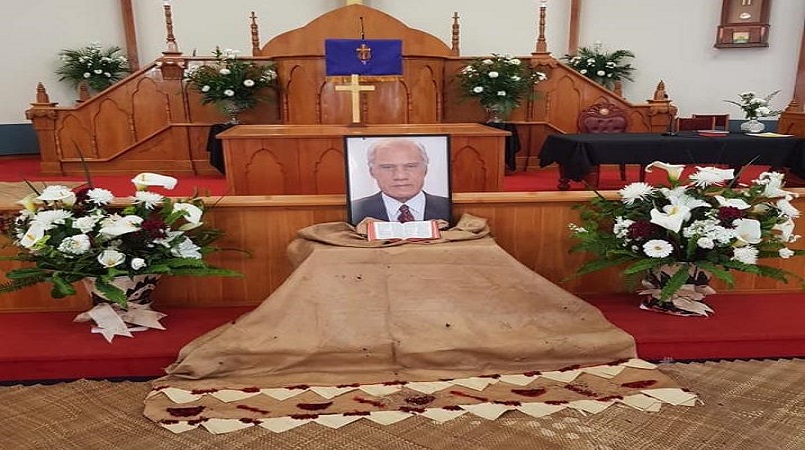
People who attended the Auckland memorial service for the late Tongan Prime Minister, 'Akilisi Pohiva, have been told to be alert for measles.
The Auckland Regional Public Health Service said a young woman who went to the memorial at the Free Wesleyan Church in Favona on 15 September has since been diagnosed with measles.
A doctor with the service, William Rainger, said people who went to the memorial should be vigilant for symptoms of the highly infectious disease from today.
Dr Rainger said these include a high fever, runny nose, a cough and sore red eyes. A few days later a rash starts on the face and neck, and then spreads to the rest of the body.
People with symptoms or those unsure about their immunity status should talk to their doctor or call Healthline on 0800 611 116.
"You are most at risk if you're not immune to measles, either because you haven't been vaccinated or you haven't had the disease previously," Dr Rainger said.
He said there were translators available through Healthline.
Auckland has had 1203 cases of measles, with nearly 50 percent of occurring in Pacific communities in the region, especially in South Auckland.
Measles information:
If you are showing symptoms, call a doctor but stay at home - do not visit the GP as you could spread the disease at the waiting room
Measles symptoms include a fever, runny nose, sore red eyes and cough, followed a few days later by a rash usually starting on the face before moving down the body
You can have measles and spread it to other people before you start to show any symptoms or feel sick
It can take about two weeks to be fully immune after being vaccinated
Healthline offers free advice and has a translator service 0800 611 116
Measles has a 90 percent infection rate, meaning nine out of 10 non-immue people who come into contact with an infectious person contract the disease
Measles is a serious disease, and can lead to complications including pneumonia and in rarer cases brain damage or even death
